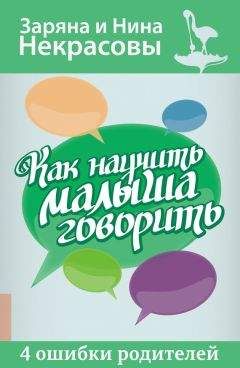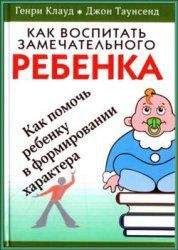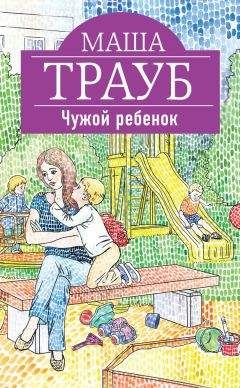Leo Frankowski - CONRADS QUEST FOR RUBBER
We had some coal for the engines and food enough to eat, but that was about it.
And we were all tired. Deep-down-right-to-the-bone tired, so tired that even sleep didn't seem to do much good anymore.
That was when we found a completed bridge all the way across the Vistula, with thousands of Mongols racing across the top of it, getting to the west bank we had protected for so long.
Most of us were down in the cargo deck finishing lunch when Lord Conrad ordered everyone ashore, except for one volunteer to take care of the engines. He said he was going to take out the bridge by ramming it and this would likely sink the boat, so there wasn't any sense in getting everybody killed.
Except by then, well, there weren't any of us that had much sense left!
Leaving the boat? Abandoning ship when so many of our friends had died to preserve her? How could we do such a thing?
I looked at the men around me and said that maybe the boat wouldn't sink. Maybe the boat would get hung up on the bridge and we would be needed to clear the decks of the enemy. The others around me nodded. What I said seemed like perfect sense to them.
Then someone said that if we pushed all the carts right up tight to the front of the boat, the boat would hit the bridge with a much more solid blow, and a bunch of the guys immediately started packing the big war carts tight up against the bow. One of the engine crew said if we flooded some of the watertight compartments below the floor, we would make the boat heavier, and it would hit harder, so they started doing that, even though we all knew that doing so would make the boat even more prone to sink.
To all of us, it was no longer important whether we lived or died. The important thing was to knock down that bridge, and then, if we were still afloat, to defend the boat from the Mongols.
Lord Conrad and Captain Targ were shouting at each other. I'm sure I heard someone say "Mutiny!"
Then our captain said, "Of course, sir. But for now, we'd better all get up on deck, or we'll miss the show. The boat-master, Baron Tados, won't be waiting for orders, you know. All platoons! Report on deck! Pass the word!"
"You are all crazy people!" Lord Conrad shouted.
Sir Odon said, "Yes, sir. I suppose we are." Then he hurried up to the fighting top, and I was right behind him.
The bridge was tall, much taller than any of the other ones we had destroyed. I guess they had cut the logs thinking that the water was deeper here. Anyway, it was higher than the boat, and the roadway was made out of ropes that ran at the top of the logs.
There were I don't know how many thousands of Mongols up on that bridge, moving across as fast as they could. They saw us coming, they were pointing at us and shouting, but they never stopped moving. I saw men and horses getting on that bridge right up until the moment we hit it.
And hit it we did! Only we didn't punch a hole through it, the way I thought we would. We knocked it right over! Those big logs must have been just sitting on the bottom, because the ones right in front of us just went right over, Mongols and all! Then the water sort of caught the rope roadway and dragged it downstream, which just naturally pulled down the whole rest of the bridge with it!
There were all those thousands of Mongols splashing in the water, but none of them splashed around for long. Somebody said they came from a dry country called a desert, and they couldn't swim one bit better than I could!
Well, a few of them got near the western shore, so the gunners used some of their last bullets to get rid of them. I think most of the horses swam away, though.
It took us the rest of the day to get the boat fixed up.
Then things got quiet for a few days, and some of the guys said that the Mongols must have quit and gone home. The captain said that the enemy had pulled back from the river, but they weren't headed home yet, so we just paddled slowly around, waiting.
Then a really strange thing happened.
Early one morning, all along the river as far as we could see, the Mongols rode their horses down to the riverbank. They each got off, grabbed their horse's tail, and made the animal swim out into the water. And those horses swam all the way across the Vistula with the men behind them!
Our boat went right through them, drowning I don't know how many. Hundreds, maybe thousands, but not all that many compared to the huge numbers of warriors that were in the Vistula that chilly morning.
I heard somebody say that if the Mongols could do that, why hadn't they done it weeks ago, before we had killed so many of them on the riverbanks and on all those bridges we took out?
Then somebody else said to look carefully at the horses getting out of the water. Only about half of them still had a man behind them. All the rest of them must have drowned and sunk to the bottom in their armor.
That meant we had just seen half of the entire Mongol army drowned! They wanted to get across so bad they were willing to see half of their men die just to do it! And I mean half of the men they had left, after we had spent a week killing them by the thousands!
We were all dumbfounded, including, I think, Lord Conrad. The best anybody could think up for an answer was that maybe they had run out of food for themselves and their horses. There were millions of them, after all, and that many people and animals must eat an awful lot.
Later that day, when the insane enemy advance was over and the banks of the Vistula were again empty, Captain Targ told us we would be going ashore soon, to join up with the rest of the army that was getting ready to fight the Mongols, west of Sandomierz.
This time, no one thought of disobeying orders.
The Battle for the Vistula was over.
The Battle for Poland was about to begin.
Chapter Six
From the Journal of Josip Sobieski
WRITTEN JANUARY 22, 1249, CONCERNING MARCH 7, 1241
THEY COLLECTED all the riverboats they could find, and together we disembarked in the cold rain, all of the men from the River Battalion who could still fight.
There were only nine boats left, nine out of the three dozen we had started out with.
There were only forty-one war carts to be pulled away from the shore out of the two hundred sixteen that had been loaded aboard at East Gate.
There were only sixteen hundred twenty-nine of us left out of the nine thousand men who had marched out of Hell to war, and almost all of us were wearing bloodstained bandages.
My lance had been surprisingly lucky. All six of us plus Sir Odon were still alive and upright, if not exactly well, but we were no longer together.
We had lost our platoon leader, and our war cart itself was smashed in the fighting, so the fifth platoon had been split up, temporarily, to fill out the losses in the other platoons.
Only Taurus was still by my side. Captain Targ told me to keep an eye on him, and Sir Odon told me to hit him on the head if he went crazy again. They both said that he was a valuable fighting man, but we had to make sure he did his work only on the Mongols.
Taurus himself had been very quiet since that fight on the riverbank. Days later and late at night, when the others were asleep, he asked me to tell him just exactly what had happened. When I told him, he just nodded, as if he was trying hard to absorb it all.
Then, on another night, he had me go over it all again, and this time he was counting on his fingers the number of men he had killed. He asked me to add this to the number that he guessed he'd killed when he had been shooting the swivel gun, since his own arithmetic wasn't very good. I came up with a hundred twenty-one.
He nodded, and he almost smiled.
It had been a hard morning's work, pulling the heavy war carts mostly cross-country in the freezing mud, and it was near noon when we finally found the rest of the army, west of Sandomierz.
I had the luck to be pulling on the very last cart in our column, and in the sixth file, so when we joined the rest of them, the man standing next to me, on my right, was from a different battalion. He had been there all day long and could tell me what was going on.
To know what was going on is a rare thing in the military. Usually, you find out only much later, and then what they would tell you had happened didn't seem to have much in common with what you had actually seen going on.
The first thing we found out was that the other battalions hadn't seen any action at all, except for the Nightfighters, and they were asleep somewhere. The army had been mostly waiting for the Mongols to cross the river, when all the while, the River Battalion was trying to stop them from doing just that.
They all had plenty of ammunition, whereas we were down to two bullets per gun. They quickly shared with us, and soon their other companies were helping out the rest of what was left of the River Battalion.
The entire army was there, although most of it was over the horizon, lined up in battle array, surrounding a long, shallow valley that they said held the whole Mongol army. We had the honor of plugging the hole they had ridden in through, chasing the noble knights of three duchies who were pretending to flee.
"Or pretending to be pretending!" Somebody laughed. Many commoners have a less-than-worshipful view of our traditional nobility.
Our noble knights were supposed to run out the other end of the valley, some other battalion would close off the hole, and then the whole army would advance and destroy the Mongols.
Of course, the other end of the valley was eight miles away, so things took a bit of time, but soon we would be getting the order to advance. We ate a hasty lunch and waited.
An hour later word got back that our noble knights had not left the trap after all, but outnumbered ten to one, had decided to take on the Mongols by themselves.
I nodded, yes, that sounded like every noble knight I had heard about in every fireside tale. Nitwits, the lot of them.
Much later we could see the horsemen fighting and slowly working their way toward us.
These Mongols were just like the ones we had been seeing for weeks, in motley clothes and armor and riding undersized ponies. Only their red felt hats, with the peak pulled forward like they said the elves wore, were anything like a uniform.
The noble Poles were almost all wearing Lord Conrad's plate armor, but they wore it polished and on the outside rather than in pockets sewn in canvas overalls, the way the army wore it. It was pretty worn that way, but they said it took an hour to buckle each piece on separately, and it took more man-hours to keep it shiny than a regular soldier could spare.
One surprise was that all of the nobles out there were wearing identical red-and-white surcoats, which just had to be the army's doing. By themselves, that bunch couldn't agree on what kind of air to breathe.
The fight spilled into the big fields in front of and slightly below us, and it was just like being at the biggest tournament anybody ever told tales about. I don't think that such a sight was ever seen by mortal men before, and here we had perfect front-row seats, figuratively speaking.
Our people were mostly riding big warhorses, chargers, and that gave them quite an advantage over the easily knocked-over Mongol ponies. Our men had better armor and were bigger and stronger, too.
But nothing could offset their problem of being outnumbered ten to one.
Our knights were tough, and they fought hard, but one by one they were falling. The fight went on far longer than anyone would have imagined, but anyone with eyes could see that it was a losing battle.
And there wasn't anything we could do to help them! The fight was so tangled, with individual horsemen fighting other individuals almost nonstop, that any shots we fired from the swivel guns were as likely to kill our own people as the Mongols.
A swivel gun bullet could go through six armored men, and even when you hit your intended target square on, the men standing behind him could be anybody!
Oh, every now and then a wounded man would come near our lines, and some of us would go out to him. If he was a Christian, wearing a red-and-white surcoat, we would help him to safety, and if he wasn't, we would kill him and let him lie, but it still wasn't much of a contribution to the cause.
I could see Taurus on my left getting more and more anxious, and I did what I could to calm him down, not that talking did much good.
A while later a pair of very pretty girls drove up behind our war cart with a huge, army liquid cargo cart full of beer! Since our dinner gear was still packed, we had nothing but our helmets to put it in, but the war wasn't affecting us much just then, and anyway, we drank it in a hurry. A helmet full of beer calmed Taurus down considerably, and I worried less about him.
The girls didn't stay, which was a pity, but I suppose it was just as well.
Most of the troops were angry about the way we were standing idle while our knights were dying out there, but I had mixed feelings about it.
I mean, it was their decision to be out there in the first place, and in the second, if any of them wanted to leave, we would have let them through our lines.
I think those knights were actually having fun, and if they were crazy enough to think they were accomplishing something, well, that was their problem. With all the guns we had pointed at the Mongols, we could have blown them away in minutes, if the noble knights would only have gotten out of our way!
And anyway, I really hadn't liked most of the noble knights I had met. Oh, some of them, like Lord Conrad and Count Lambert, were truly fine people, but so many of them were just a bunch of privileged bullies. They were rude, and sometimes they took my father's bread without paying for it.
And why the girls who worked at the cloth factory — most of whom were of my age — wanted those knights when they would have nothing to do with me, well, it was beyond me.
Finally, in the late afternoon, after hours of watching the bloody show, I saw Lord Conrad run out onto the field with a nobleman right behind him, leading the thousands of men in his army into the fight.
"It's about time!" the men all around me said.
We all shouted, "For God and Poland!" We slipped the ropes that held us to the carts, vaulted the big shield in front of the first line axemen, and charged out onto the field.
We weren't marching in step, of course, since we were running. But habits stick with you, and we kept pretty much in line.
The horsemen, almost all of them Mongols by this time, were shocked to see us running at them. Most of them turned and ran away from us, or maybe their horses did and the men went along for the ride.
A few turned and charged right back at us, but that was something for which the army had trained us well. Our men just lined up and grounded their pikes, and the men nearest the center impaled the horse front to rear. The other pikers around them went for the rider, and if he lived to hit the ground, he rarely lived to get up, since a dozen or more troops would mob him.



